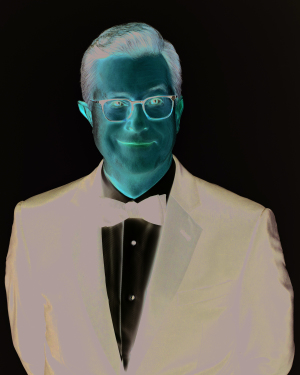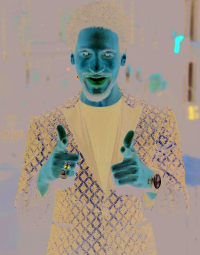News
Election season: Stephen Colbert goes live after first Democratic debate

Stephen Colbert hosts "The Late Show With Stephen Colbert"
As the 2020 presidential election approaches, the world of American late-night television is also ramping up for one of its busiest and most fruitful periods. On Wednesday, June 26, and Thursday, June 27, CBS present special live episodes of "The Late Show With Stephen Colbert" to cover the first Democratic primary debate of the 2020 election cycle.
The history of "The Late Show With Stephen Colbert" is closely tied to the electoral politics of the United States. The show premiered in 2015, when Colbert took over from the departing David Letterman. Colbert had previously been a star correspondent for "The Daily Show With Jon Stewart" before hosting his own satirical news show, "The Colbert Report."
Both of those shows earned a reputation for deep engagement with the political climate in America, and when Colbert set up shop at CBS -- alongside band leader Jon Batiste, who has his own interest in grassroots activism and humanitarianism -- the network was open about the likelihood of the late-night slot becoming more political than it had been under the previous creative team. This new formula has proven successful: "The Late Show" has retained the lead in late-night viewers so far in 2019.
Colbert's 2015 debut coincided fortuitously with the lead-up to the 2016 presidential election, and Colbert's first season of "The Late Show" leapt right into the fray with coverage of the Democratic and Republican primaries, and the subsequent election for president. Since the 2016 election, Colbert -- a self-described Democrat -- hasn't shied away from criticizing the current administration, and it's obvious that he would personally prefer to see a Democrat in the White House.
That doesn't mean he'll pull any punches when it comes to the Democratic debates. Colbert and his writing staff are more than prepared for a sarcastic romp following the debates, and will not hesitate to deride anyone who falls prey to gaffes, dud lines or hypocritical arguments.
The debate itself is shaping up to be an interesting, if potentially messy, event. The Democratic National Committee established some very specific requirements for candidates looking to participate in the first of likely 12 debates total in this primary. In order to qualify, a candidate needs to register a minimum of one percent in three approved pre-debate polls or receive campaign contributions from 65,000 unique donors with a minimum of 200 from every state in the country.
Total participation in the debate is capped at 20 candidates, but even with those new gatekeeping rules in place, the field of eligible contenders is already approaching the maximum allowance. CNN has confirmed 13 eligible candidates as of late May, with six more nearly there.

Jon Batiste leads the band in "The Late Show With Stephen Colbert"
For obvious reasons, having 20 people talking over each other on a stage, each looking for opportunities to make their individual cases and distinguish themselves, was determined to be impossible; that kind of chaos helps no one, and for that reason, the DNC decided to split the first debate of the primary across two nights in order to reduce the cacophony onstage.
The DNC then went a step further and declared that the specific participants on each night would be randomly determined (rather than selected preferentially according to perceived metrics of popularity, relevance or seniority). The DNC apparently learned a lesson from the roundly mocked Republican debates of 2015, during which debate rosters were handpicked by leadership, leading to the B-list debaters being scornfully dubbed "the kids table."
The field of Democratic candidates for the 2020 election is a mix of familiar veterans and upstart newcomers, nearly all of whom have been guests on Colbert's various series. It's much too early in the process to declare a frontrunner, but there are candidates who seem more likely to stay in it for the long haul than others.
Senators Bernie Sanders and Elizabeth Warren and former vice-president Joe Biden are among the highest polling candidates at the moment. Sanders had a competitive run in the 2015 Democratic primaries, and his 2020 campaign was eagerly anticipated by Democratic supporters looking for an agent of change passionate about social causes. Sen. Warren, another longtime favorite, didn't run in the 2016 campaign, but has since been preparing for an attempt. Biden also sat out the 2016 campaign (having previously run in 2008) but is back for the 2020 edition and boasts the strongest name recognition among the field of contenders.
Other candidates of note include Indiana mayor Pete Buttigieg, California Sen. Kamala Harris and New Jersey Sen. Cory Booker, as well as former congressman Beto O'Rourke of Texas. Some of the interesting outlier candidates who may spice up the conversation at the debates (and become likely targets for comedians like Colbert) include tech-obsessed entrepreneur Andrew Yang and new-agey spiritualist and author Marianne Williamson. The participation requirements are at their lowest threshold for the first debate, and the minimums will double before the next debate in July, thinning the field of prospective participants and likely removing some quirky niche characters from the mix.
If you're interested in following the debate and its aftermath, the two halves of the debate proper will be hosted and broadcast live by NBC and MSNBC on Wednesday, June 26 and Thursday, June 27. Following the conclusion of each evening's debate, "The Late Show With Stephen Colbert" goes live on CBS.
More Articles
- The 'Continental' experience: John Wick franchise gets three-night TV stay
- The 'Continental' experience: John Wick franchise gets three-night TV stay
- Dixon days: Daryl dominates new 'Walking Dead' series
- Dixon days: Daryl dominates new 'Walking Dead' series
- In the mood for mystery: Detective dramas return with back-to-back premieres
- In the mood for mystery: Detective dramas return with back-to-back premieres
- In the mood for mystery: Detective dramas return with back-to-back premieres
- Powerful forces: 'Ahsoka' must save the universe in new Star Wars spinoff series
- Powerful forces: 'Ahsoka' must save the universe in new Star Wars spinoff series
- Rocking reflections: Paramount revisits Elvis Presley’s 1968 special
